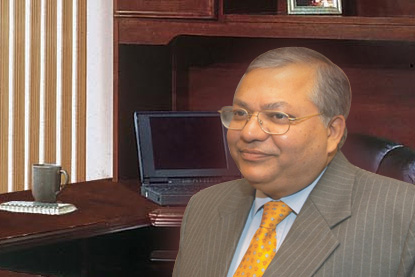
Indian billionaire Ravi Jaipuria will invest $250 million in a number of sectors of the economy in a major boost for Zimbabwe’s efforts to lure foreign direct investment (FDI).
BY OUR STAFF
Varun Beverages, a unit of Jaipuria’s RJ Group, has partnered with a local company Glaciem (Pvt) Limited to set up a $30 million Pepsi bottling plant in Zimbabwe.

The plant will bottle Pepsi, Mirinda, 7UP, Mountain Dew and Acquaclear water. The investment was awarded national project status.
Zimbabwe’s ambassador to India, Maxwell Ranga told guests at a ground-breaking ceremony on Friday that the investment is a “starter to the main course meal” as the Indian firm would also invest in other projects.
He said a 100MW solar plant would be constructed, followed by tomato and potato processing and juice making plants.
Ranga said the RJ Group would assist local hospitals to partner with one of India’s biggest hospitals.
- Chamisa under fire over US$120K donation
- Mavhunga puts DeMbare into Chibuku quarterfinals
- Pension funds bet on Cabora Bassa oilfields
- Councils defy govt fire tender directive
Keep Reading
Industry and Commerce minister Mike Bimha said the total investment by the Indian billionaire would come to “$250 million in a few years”.
Bimha said the development was an endorsement of Zimbabwe as a safe investment destination.
Varun Beverages Africa CEO Krishnan Shankar said the Zimbabwean bottling plant would be running in 11 months, the time it took the group to set up a plant in Zambia.
“We want to replicate what we have done in Zambia here in Zimbabwe. That’s my target and I am sure I will be able to do it,” he said.
Shankar said the plant would have a capacity of doing 600 bottles per minute. It would also do 200 plastic bottles per minute and bottle 350 cans per minute.
He said the potato and tomato plants would be operational in 2018 for exports to the Indian market.
Shankar said their entry into the Zambian market in 2010 had stabilised prices.
“After we came into Zambia, our competitors have not increased prices. I am sure we will be able to grow and control the prices for the consumer,” he said.
Project promoter and entrepreneur Adam Molai said entrepreneurship was the way to growth, full employment and price stability.
“Entrepreneurship is the enemy of monopolies. We have seen it in the tobacco industry how the sector has created greater choice and price competitiveness. We are now seeing in the soft drink industry, where since our emergence, the prices of soft drinks have come down by over 40%,” he said.
Molai said the bottling venture had been granted national project status.
According to the Industrial Development Policy (2012-2016), projects are deemed national through the massive size of capital (both financial and plant and equipment) that would be needed for that type of investment and exempted from duty payments and other tax payment requirements.
Zimbabwe has been undertaking reforms to lure FDI, which is seen as a catalyst to reboot the economy in the absence of lines of credit from multi-lateral financial institutions.











